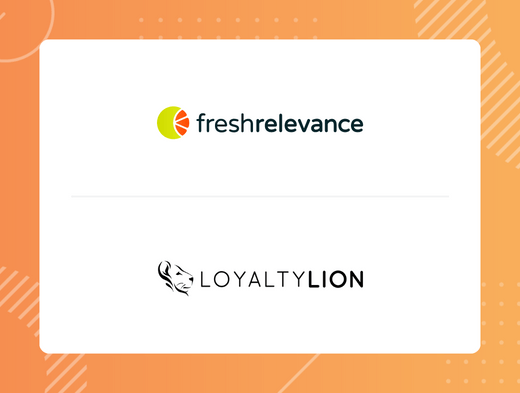Besides being great with a cup of coffee, cookies are a valuable way to track website visitors, improve the user experience and collect data for ad retargeting.
But the cookie landscape is changing. This is due to privacy concerns and legislation such as GDPR, and the fact that browsers are starting to block third-party cookies. Safari and Firefox have done this by default since 2019 (more at clearcode), and now the biggest browser-maker Google says that Chrome will phase out third-party cookies within two years, citing users’ demand for greater transparency, choice and control over how their data is used.
In a bid to make the web more private and secure for users, while also supporting publishers, Google is working on an open source initiative known as Privacy Sandbox. With this initiative, Google aims to sustain an ad-supported web in a way that will render third-party cookies obsolete.
Additionally, Firefox have rolled out Total Cookie Protection by default to all users worldwide. Total Cookie Protection is Firefox’s strongest privacy protection to date, confining cookies to the site where they were created, thus preventing tracking companies from using these cookies to track users’ browsing activity from site to site.
What’s the difference between first-party and third-party cookies?
First-party cookies are stored by the domain (website) you are visiting directly. They allow website owners to remember your session, collect analytics data, and perform other useful functions that help provide a good user experience.
Third-party cookies are created by domains other than the one you are visiting directly, hence the name third-party. They are used for cross-site tracking, retargeting and ad-serving (more at clearcode).
Why is this conversation being had?
Adtech and martech have crossed over in various ways. Tactics used by adtech to identify and target browsers with ads have been used in martech applications to identify shoppers for functionality such as triggered emails (for example cart abandonment emails).
To some degree, this is a collision of worlds where there are different views and motivations. In advertising black box logic, shared cookie pools and probabilistic identification has been commonplace. In customer marketing, this tends to be covered up when applied and the truth can be elusive when speaking to organizations that try to apply these techniques in any ‘owned’ scenario.
Some of these tactics are questionable at best under European law (similar versions of which are being implemented in other countries). Here we comment on the facts that many involved in this area seem reluctant to address.
What does third-party cookie blocking mean for us?
The news of Google’s third-party cookie phase out is undoubtedly a huge blow to some areas of the marketing and advertising space, and businesses who’ve relied on third-party cookies for their online audience targeting strategies might be suffering some sleepless nights.
But Fresh Relevance clients can carry on as normal.
Blocking third-party cookies doesn’t affect Fresh Relevance
- Fresh Relevance uses first-party cookies, stored in the visitor’s computer when they visit a website.
- Fresh Relevance works fine with browsers that already block third-party cookies by default, such as Safari.
- Fresh Relevance does not use third-party cookies for normal customers. They are only used for unusual special cases, such as connecting between two related domains owned by the customer or when the checkout lives on a different domain to the main store. NB: these cases can alternatively be handled without third-party cookies if the websites/domains expose a single session ID on both sides, which is included on the link from one domain to the other.
- Fresh Relevance does not employ fingerprinting or other techniques designed to subvert or get around privacy protection legislation
- Fresh Relevance does not share tracking or other information between customers/accounts
- Fresh Relevance uses all the data that can be legitimately gleaned from all identified activity with owned channels such as web and email campaigns, for example it tracks shoppers from email to web page.
- Fresh Relevance also uses advanced AI techniques to personify the experience of visitors who have not yet been identified, even on the landing page. This allows it to deliver relevant digital experiences based on the analysis of billions of shopping journeys, rather than based on the shopper’s personal identity.
Supercookies and fingerprinting
In the quest to track website visitors, some businesses go further than third-party cookies by undertaking a practice called fingerprinting. This is done using supercookies, which are used in place of ordinary cookies to store user identifiers. They are more difficult to delete and block, making it nearly impossible for users to protect their privacy when browsing online.
Browser makers are cracking down even harder on this practice in a bid to protect users’ privacy. For example, Firefox are stopping tracker and adtech companies who abuse browse features to follow people around the web by making changes to greatly reduce the effectiveness of cache-based supercookies, claiming they want to keep all of their users safe.
Apple is blocking information such as IP addresses from being exposed when an email is opened. This will impact the cookie pools that are used by Adtech in conjunction with large media owners.
Any company that claims to have unique IP in this area that can’t be explained to you in detail and can’t be proven to be legally compliant in your region should be avoided.
Fresh Relevance does not use supercookies or fingerprinting, so we are unaffected by these changes.
Learn more about the pitfalls of personalization platforms that use supercookies and fingerprinting.
Final thoughts
To safeguard against third-party cookie blocking, it’s important to stay up-to-date with any further announcements that could impact your business. And when implementing any software or solutions to your marketing technology stack, ask whether they can help you better transition away from third-party cookies.
Learn more about Fresh Relevance and book a demo to find out how we could help your business increase engagement across devices and channels, boost revenue and drive customer loyalty.







